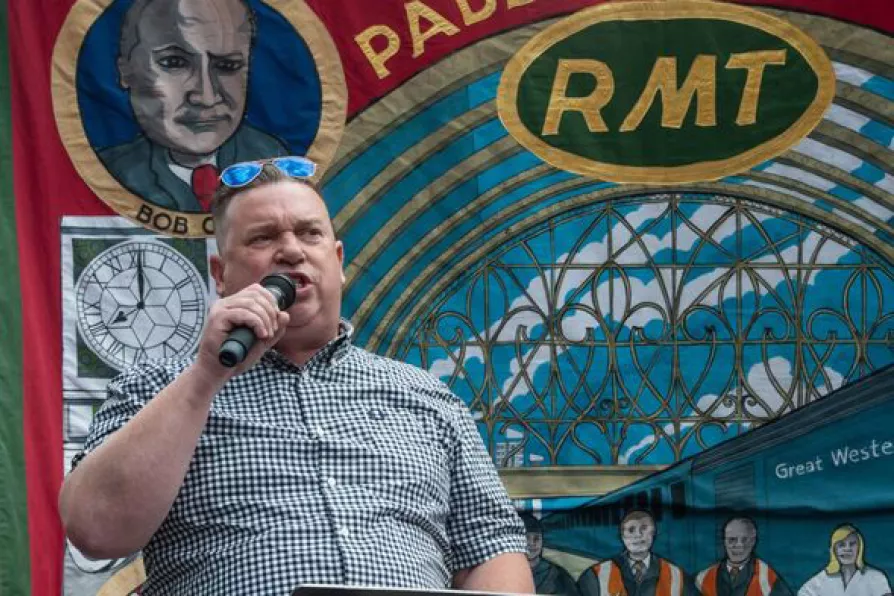The Carpathia isn’t coming to rescue this government still swimming in the mire, writes LINDA PENTZ GUNTER

 Alex Gordon gives a speech at London's King's Cross
Alex Gordon gives a speech at London's King's Cross
RMT’s Annual General Meeting this year meets in Bournemouth, Dorset, one of the birthplaces of the trade union movement.
Any RMT delegates who needs a reminder this week of the great radical heritage of our movement can visit the Shelley family tomb in St Peter’s churchyard in Bournemouth.
Mary Shelley, author of Frankenstein, was born in Somers Town, St Pancras in London in 1797, near where RMT’s head office, Unity House now stands. Her mother, Mary Wollstonecraft died 11 days after giving birth to her and was buried in St Pancras Old Churchyard where her tomb remains, although she was later reinterred alongside her daughter in Bournemouth.
Mary Wollstonecraft, author of A Vindication of the Rights of Woman and a founder of feminism in Britain, was a revolutionary advocate for free education for working-class girls and boys.
She wrote: “Day schools, for particular ages, should be established by government, in which boys and girls might be educated together. The school for the younger children, from five to nine years of age, ought to be absolutely free and open to all classes.”
Her daughter Mary Shelley was buried in Bournemouth, alongside the heart of her husband, Percy Bysshe Shelley.
It is Percy’s words — written after hearing of the 1819 massacre of workers by armed cavalry at St Peter’s Fields, Manchester — that feature on so many trade union banners today:
“Rise like Lions after slumber
In unvanquishable number —
Shake your chains to earth like dew
Which in sleep had fallen on you —
Ye are many — they are few.”
Shelley’s words comforted and inspired generations of workers facing powerful class enemies and repressive forces of the state.
RMT stands in solidarity to all those fighting for justice, from the Tolpuddle Martyrs (six agricultural labourers deported to Australia in 1834 for swearing an oath not to undercut each other’s wages) to the Windrush survivors in 2018 (wrongfully detained, denied legal rights, threatened with deportation, and in at least 83 cases wrongly deported).

ANSELM ELDERGILL examines the legal case behind this weekend’s Tolpuddle Martyrs’ Festival and the lessons for today

As the labour movement meets to remember the Tolpuddle Martyrs, MICK WHELAN, general secretary of train drivers’ union Aslef, says it’s an appropriate moment to remind the Labour government to listen to the trade unions a little more

RMT’s former president ALEX GORDON explains why his union supports defence diversification and a just transition for workers in regions dependent on military contracts, and calls on readers to join CND’s demo against nuclear-armed submarines on June 7

KEITH FLETT traces how the ‘world’s most successful political party’ has imploded since Thatcher’s fall, from nine leaders in 30 years to losing all 16 English councils, with Reform UK symbolically capturing Peel’s birthplace, Tamworth — but the beast is not dead yet









